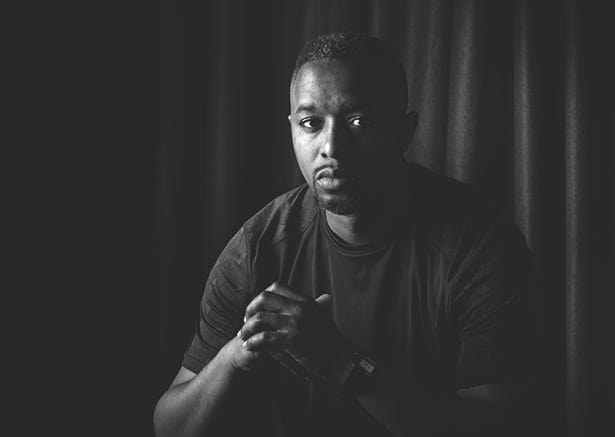Teaching while Black
Jason Fahie on being a Black male teacher in Howard County.

When I moved to Maryland 11 years ago, I was the only Black male teacher in my building. I had to learn to navigate a new environment while, once again, being an ambassador for my community. I can remember sitting in the teachers’ lounge and not having much in common with my colleagues who were primarily young White women. To better assimilate, I began watching shows like “The Office” to have a connection with my co-workers. I enjoyed watching the show, but it reminded me of being in middle school where to fit in I watched “Friends” and listened to Alanis Morissette.
Being a Black male in education means you have to be a master at code switching throughout your entire day. The conversations I have with other Black educators in my building are usually very different from the ones I have with the rest of my colleagues. When I am one of — or the only — Black person in the room, I carry myself differently than when I’m in the company of Black educators. Code switching shouldn’t need to exist but it seems that Black culture is only acceptable when others are profiting from it.
As a Black man, I know I will always be judged by my appearance first. It starts with my hair. I get my hair cut every week for many reasons. First, I like to look good. Second, I want to be a role model for my students, especially my young Black men. Third, I realize that as one of the few Black male educators my students — and some of my colleagues — will ever encounter, I represent more than just me.
Just my choice of clothes can be challenging. I wear an earring on most days, but it took me a while to wear it to work because I didn’t want to be viewed as unprofessional. I like to wear hoodies, but I know that as a Black man, wearing a hoodie can be viewed as a threat, so when I do, I’m sure to remove my hood when entering Dunkin for coffee and always when entering my worksite. I take a few looks in the mirror every morning just to confirm that I look trustworthy and non-threatening. I’m sure to hold doors for people because that’s what my father taught me to do, but I also know I’m helping to break down stereotypes one interaction at a time.
In sharing with fellow Black educators, I’ve realized that we care about our students more than our other colleagues. I don’t want to say that my colleagues are biased or racist; I just know that Black educators hold our Black students to higher standards and give them more strikes than our White counterparts. It’s just how our community works.
JENNIFER LUDDEN, HOST: Why is it so hard for white people to talk about racism? That’s the question author Robin…www.npr.org
There are many things that happen in a school setting that I have to be mindful of how I respond to. I never want to be viewed as the angry Black man. I tend to keep a lot of my frustrations to myself or share with a very small circle of colleagues. The stress that comes from the daily highs and lows of teaching, in addition to being a Black male in a primarily White institution, can be overwhelming at times. This stress carries over to my personal relationships and affects the way I parent my own child.
I know very few Black male teachers, but one thing I know is that we share a special brand of stress. We are educators because of a higher calling and passion for making an impact in our communities, but that stress is leading too many of us to consider other careers.

